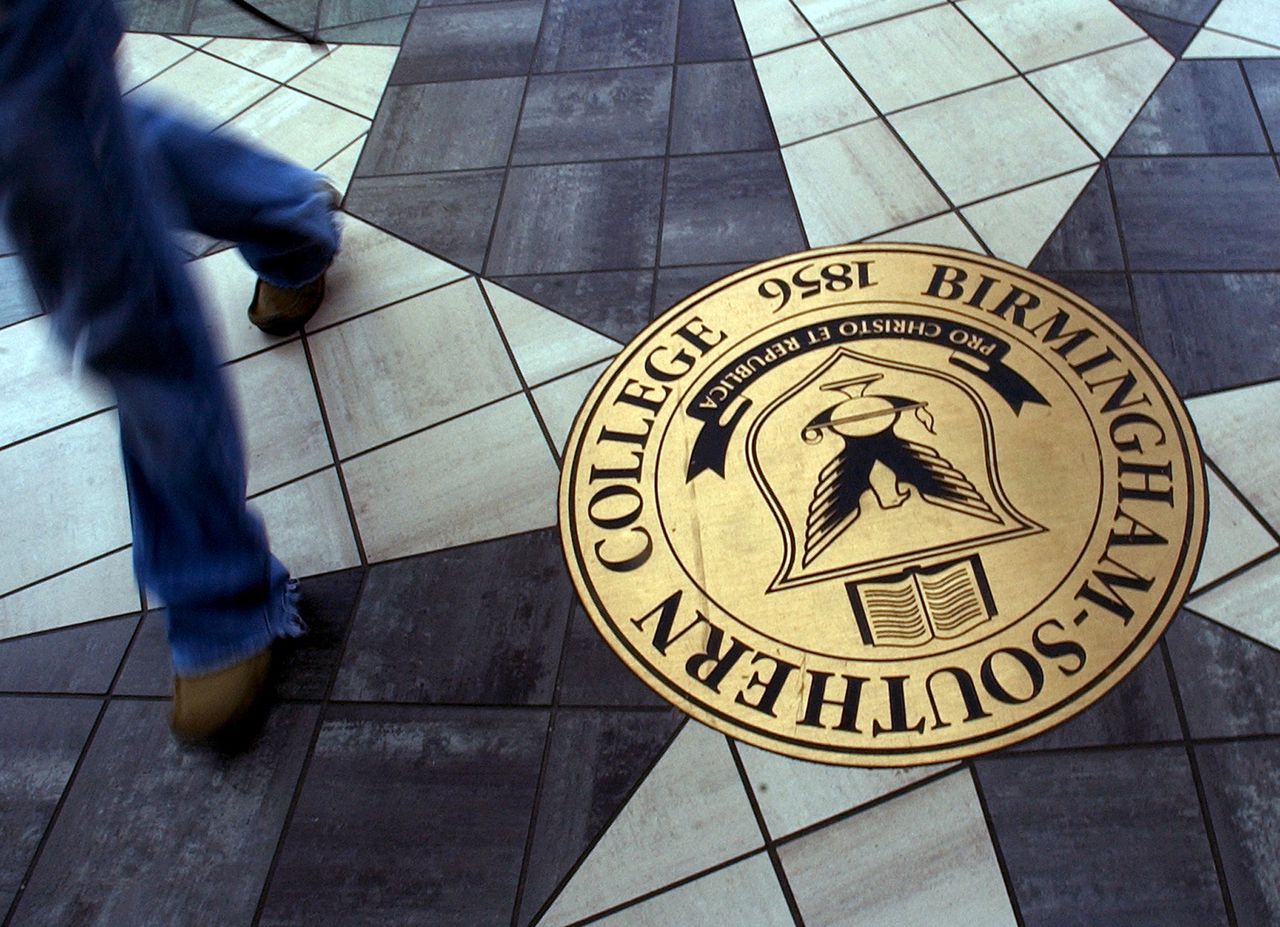Birmingham-Southern College touts its value in economic impact statement
As it seeks public funding to stay afloat, Birmingham-Southern College has touted its value to the state by issuing an economic impact statement.
Birmingham-Southern this week released a study by M. Keivan Deravi of Economic Research Services Inc. that asserts the college has an impact of $97.2 million annually on Alabama’s economy.
The private liberal arts college, founded in 1856, is asking for $30 million in funding from the State of Alabama, $5 million from the City of Birmingham and $2.5 million from Jefferson County.
“Dr. Deravi’s study validates the fact that a $37.5 million investment by the public sector can return nearly a billion dollars in direct impact over the next 10 years to our state’s economy,” said BSC President Daniel Coleman in a statement released with the economic impact study. “That’s a great deal for city, county, and state taxpayers.”
Deravi based his economic impact statement on recent financial information from the college. BSC has 292 employees who were paid a total of nearly $21.7 million in salary and benefits in fiscal year 2022. It had 972 full-time students, 604 of whom were Alabama residents, with 40 percent from Jefferson County.
The impact statement estimates that each student spends $12,690 on retail, rental of real estate, utilities, recreation, gas and other expenses, a total of more than $11 million. Add in $19.5 million in in-state spending by employees and $15.1 million in in-state spending on goods and services, for a total of $45.7 million in direct in-state spending, the statement said.
Deravi then uses multiplier effects to calculate total impact of $97.2 million on the state’s economy.
In addition, of Birmingham-Southern’s 16,864 graduates, 9,516 live in Alabama and 6,818 still work in the state, translating into a “value-added social benefit of approximately $211.5 million in 2022.”
Birmingham-Southern says it has raised $45.5 million in commitments toward a $200 million endowment fund goal and says it’s on track to meet that goal by 2026, but needs public funding to stabilize its finances in the meantime.
Financial problems at Birmingham-Southern emerged in 2010 when David Pollick, who had been president since 2004, resigned after a controversy over accounting errors, overspending and increasingly dire budget deficits.
A plan to increase enrollment by building a football stadium and improving facilities led to increased financial commitments just as the value of the endowment took a hit from the recession of 2008, and as donors became less able to contribute. In 2006, Pollick dropped the college from NCAA Division I to Division III and added football, men’s and women’s lacrosse and track. The college spent about $6.5 million building Panther Stadium, which includes a fieldhouse and 8-lane polyurethane track, and upgrading its athletic facilities to double the number of students participating in sports.
The school’s deficit rose to $11.5 million by 2006, $18.8 million in 2007 and $22.1 million in 2008. The school had to borrow operating money and dip into its endowment fund, which had already been battered by a declining stock market. The endowment dropped from $114 million in 2004 to about $60 million by 2010. In 2011, BSC was placed on warning status by its accrediting agency.
The college had for years been mistakenly not subtracting Pell grants from students’ financial aid packages in revenue projections, meaning the college was giving too much financial aid, causing revenue shortfalls.
Retired U.S. Marine Commandant Gen. Charles Krulak took over as president in 2011, refinanced debt, got the school off warning status with its accrediting agency and balanced the budget three years in a row before retiring in 2014.
Coleman, who served on the BSC board of trustees from 2010 to 2013, took over as president in 2018. In 2022, he made the request for government funding and said without it the college may have to close this year.
Birmingham-Southern College formed from a 1918 merger of Southern University, dating to 1856, and Birmingham College, dating to 1898, both founded by the Methodist Church. BSC remains affiliated with the North Alabama Conference of the United Methodist Church, which built the United Methodist Center on campus. It houses the office of the bishop and conference staff and serves as a regional headquarters for the denomination.
The United Methodist North Alabama Conference supports BSC by pledging $250,000 annually for scholarships, but is facing a crisis of its own. In December, 198 of 638 churches disaffiliated from the conference, with more expected to depart this year, likely resulting in future budget cuts as church financial support drops. Leaders of departing churches said the denomination wasn’t enforcing its ban on openly gay clergy and gay marriage and most are opting for more conservative denominations.
In 2019, after the United Methodist General Conference reinforced its stance against homosexuality, Coleman issued a statement saying that Birmingham-Southern welcomes people of all sexual orientations and gender identities.
Although some Jefferson County legislators said it would be a travesty if Birmingham-Southern College closes, state lawmakers say it is unlikely the Legislature will provide $30 million to help rescue a private institution. Coleman has asked for quick action, as students are in limbo for the fall.
The Alabama Baptist-affiliated Judson College, one of the oldest women’s colleges in the country, closed in 2021 after facing a financial crisis.
Today, U.S. Rep. Terry Sewell (D-Ala.) and Coleman will have a ceremony to announce she had secured $500,000 in federal funding for Birmingham-Southern College for experiential learning and civic engagement with internships through the Krulak Institute on campus, as part of the 2023 omnibus government funding package. The money had first been announced in December.
